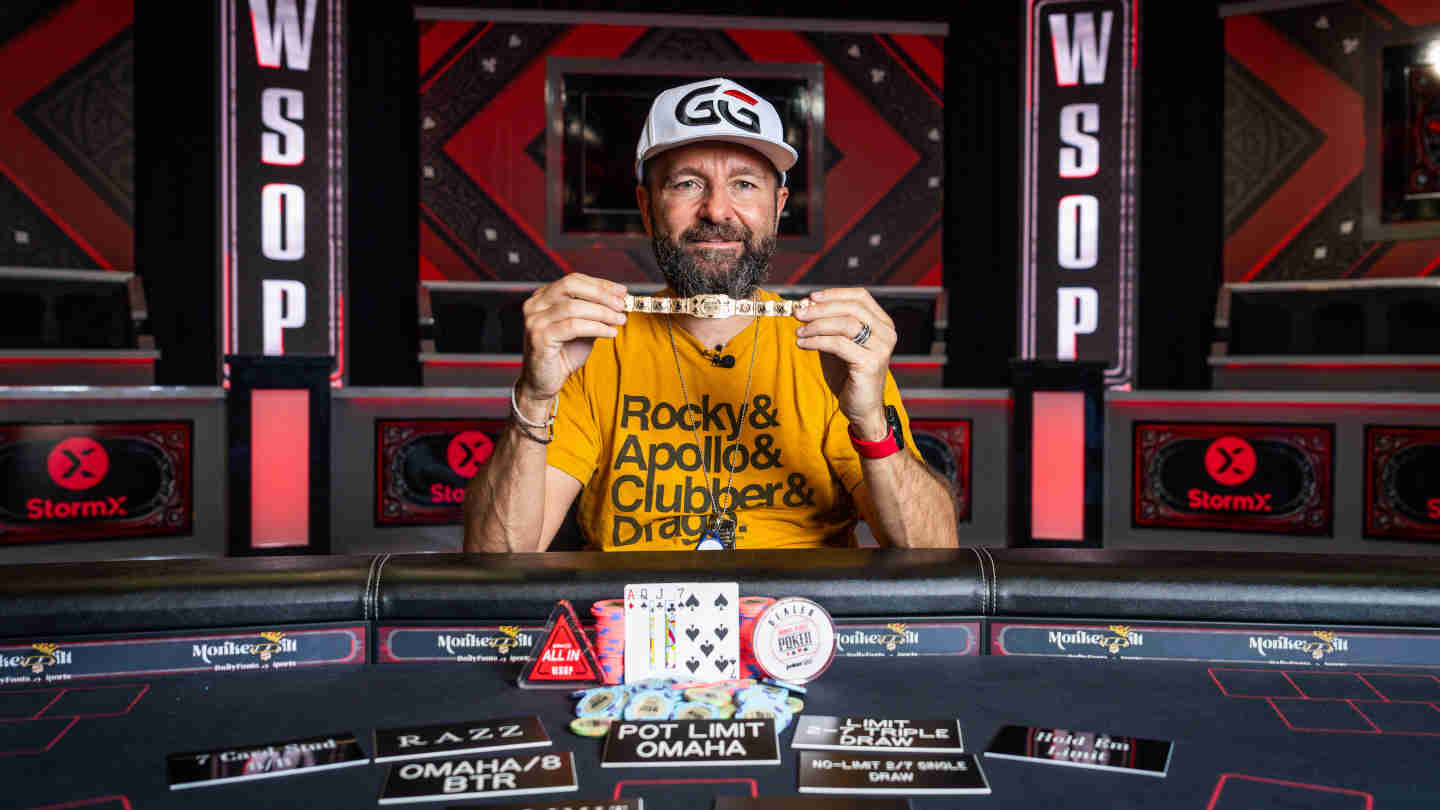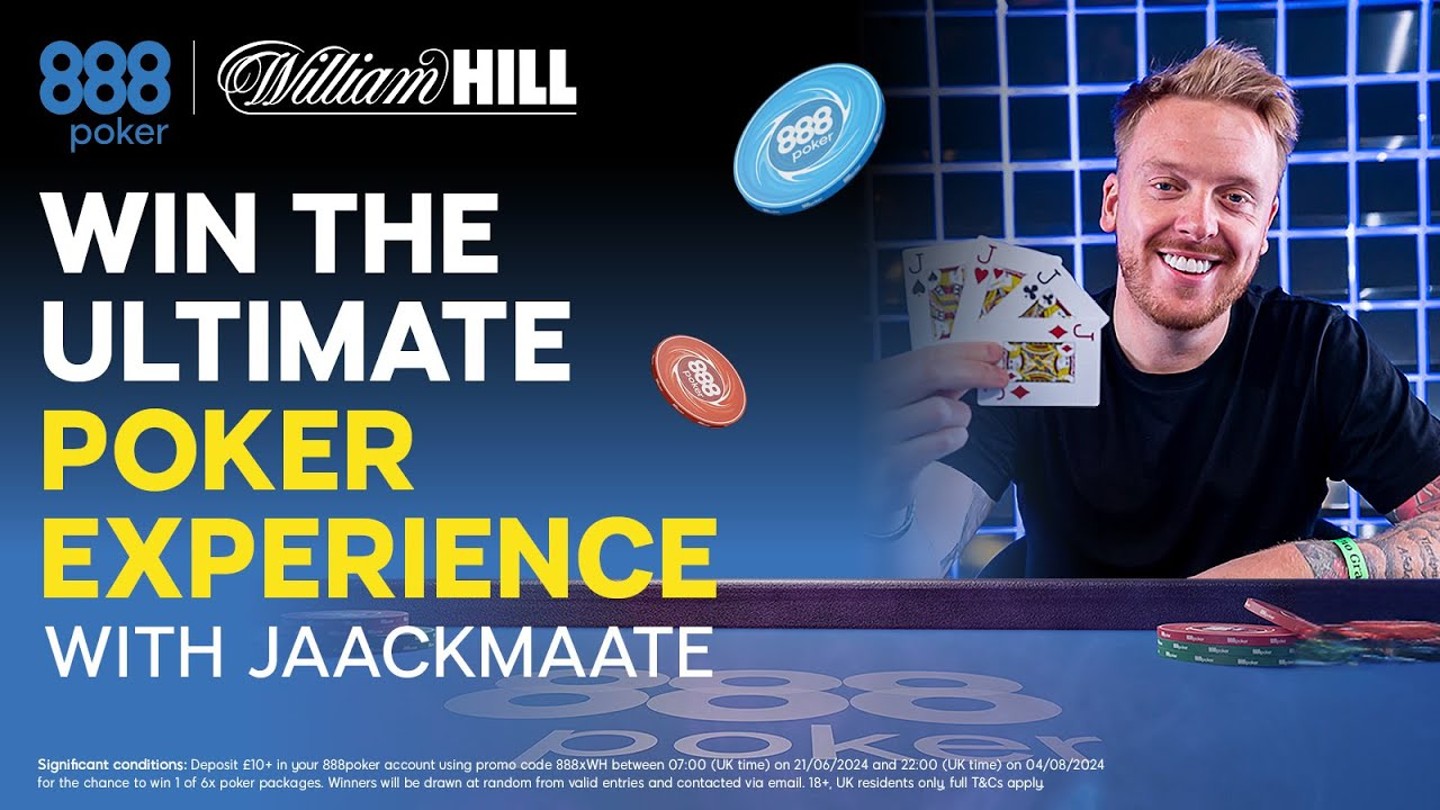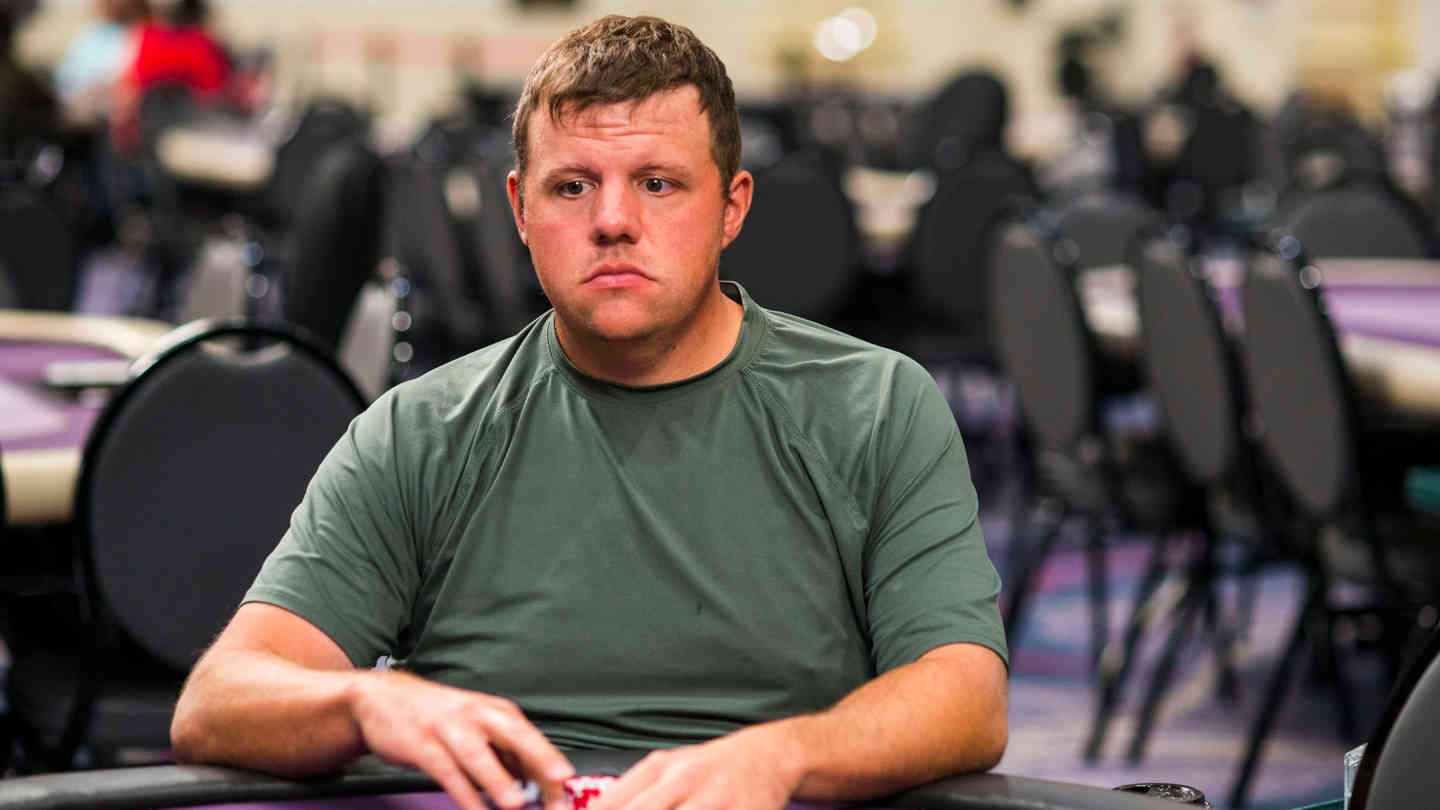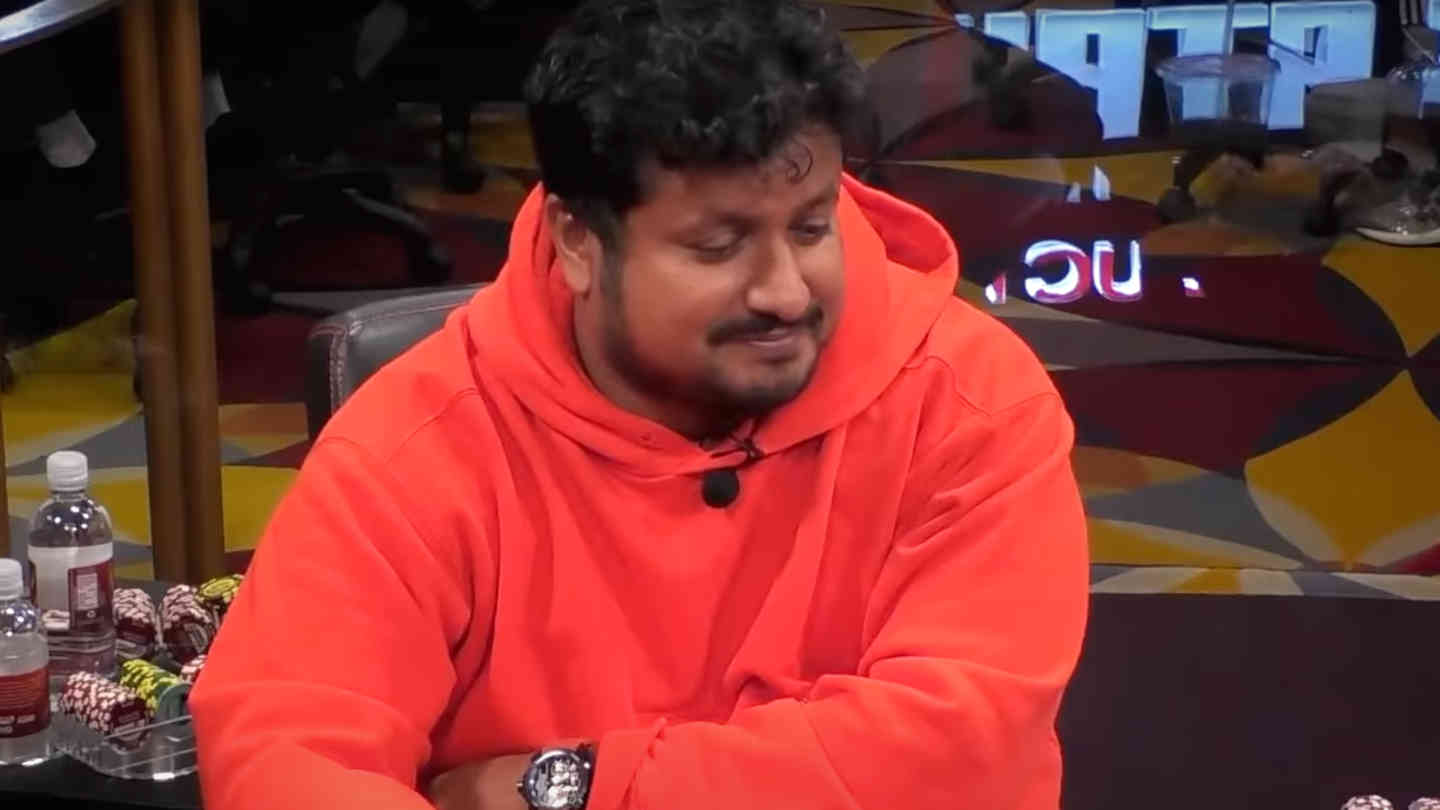Mastering the Mindset: How to Stay Focused and Play Consistent A-Game Poker
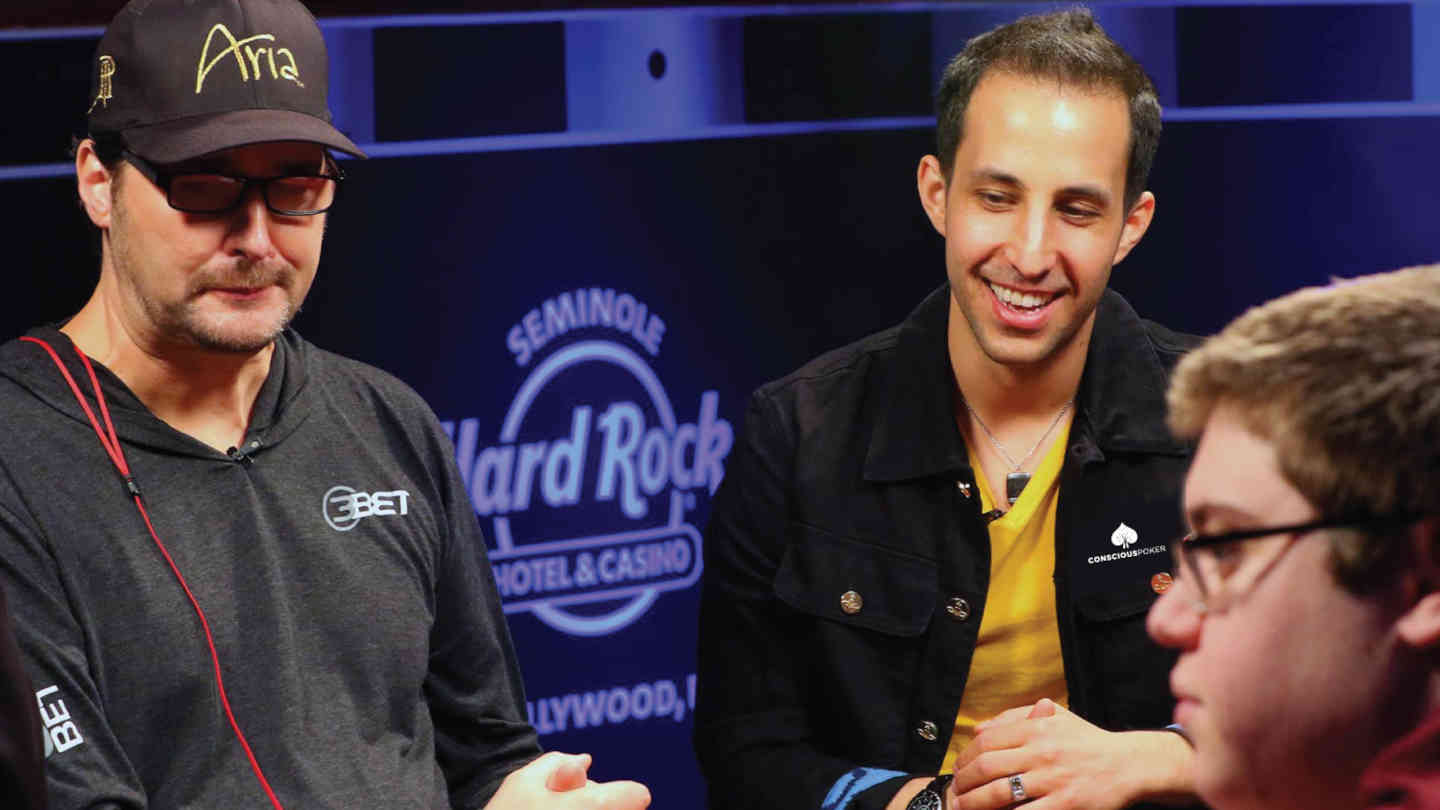
7 minutes
Last Updated: June 19, 2024
Today, I want to talk about a topic that's crucial for any poker player looking to elevate their game: mastering your mindset.
Consistently playing your A-game isn’t just about strategy and skill; it’s also about maintaining mental focus and composure, especially during crucial sessions and key moments where the pressure is turned on.
We all can relate to the feeling of being a deer in headlights, sitting there on the river facing a big bet and “going blank.” You go deep in the tank but freeze up.
You can’t reason through the hand, properly apply the Hand Range Funnel, and remain objective, resulting in a huge blunder that costs you your stack.
I get it. I’ve been there too.
That’s why when I work to improve at poker, I believe there are two key ways of doing so. You can either be better at playing poker (strategy, ranges, equities, etc.) or become a better poker player by working on some aspect of yourself.
Most focus exclusively on the former while neglecting the latter. I founded Conscious Poker because I believe in taking a holistic approach and that it requires both the proper strategy and leveling up your mindset and habits to succeed at the highest levels.
Here are some practical, actionable tips that you can start using in your next poker session to help you stay focused and perform at your best.
The following are some key takeaways from our Poker Business Accelerator, a course specifically engineered to transform your poker game into a profitable side hustle or full-time endeavor.
1. Establish a Pre-Game Routine
Having a consistent pre-game routine helps you transition into the right mental state for poker.
This routine can include physical exercise, meditation, or even a simple breathing exercise. The key is to find activities that help you clear your mind and focus on the task at hand.
I see this as a game of optimization and continual area of improvement. To this day I’m always testing new habits, activities, diets, and routines I can do to give myself an edge.
My favorites include visualization, high-intensity cardio, Wim Hoff breathing, and cold exposure.
Actionable Takeaway: Before your next session, spend 10 minutes on a mindfulness exercise. You can use an app like Primed Mind to prepare specifically for poker. Second, commit to 20 minutes of rigorous exercise. This will help you start your session with a clear, focused mind.
Continue tweaking until you find the GTO pregame routine!
2. Set Clear Goals
Setting clear, achievable goals for each session can help you stay focused and motivated. These goals should be process-oriented rather than outcome-oriented.
For example, instead of setting a goal to win a certain amount of money, set a goal to make the best possible decision in each hand.
My clients have found it prudent to step back and work on the ‘big picture’ as well. This helps anchor them to a long-term process and stay inspired during the inevitable setbacks.
Here are some questions to think about.
- What is truly motivating you to play poker?
- What do you want to accomplish this year?
- What would make you excited about your poker future?
Actionable Takeaway: Write down one or two process-oriented goals before your next session. Review them periodically during play to keep yourself on track. Next, get clear on the big picture.
3. Stay Present
One of the biggest challenges in poker is staying present and not letting past hands or future possibilities distract you. Focus on the current hand and the information available to you right now. Dwelling on past mistakes or worrying about future outcomes can lead to poor decisions.
I like to model my mental game framework after great athletes like Rafal Nadal and Michael Jordan. I’ve developed a unique routine before every hand of poker I play, similar to how a tennis player prepares for a serve.
It helps me release the emotions of the past, regain my poise, and make the best decision possible during the current hand.
Actionable Takeaway: Practice mindfulness during your session. If you find your mind wandering, take a deep breath and refocus on the current hand. Develop an in-game routine you can use before each hand you play.
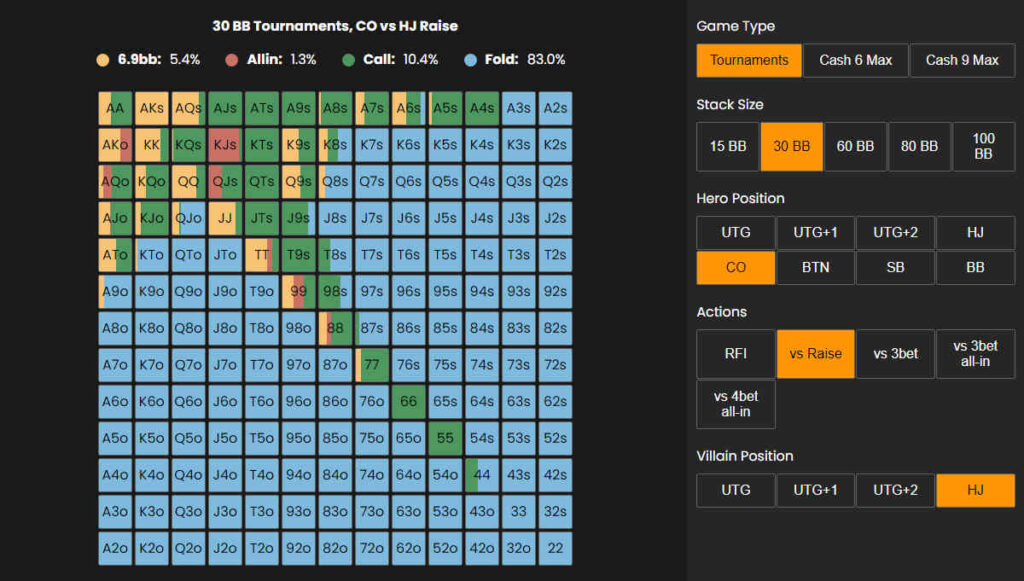
4. Stay Physically Healthy
Your physical health has a direct impact on your mental performance.
Ensure you’re getting enough sleep, eating healthy, and exercising regularly. A healthy body supports a sharp mind, which is essential for consistent A-game poker.
This is an area I continually tweak to ensure I’m playing my A-Game. I find that diet has the biggest impact on how I perform.
While I enjoy life away from the table, when I’m in poker mode I’m almost always extremely meticulous about everything I put in my body. I often fast or do a liquid-only diet for a boost in mental clarity.
This helps me stay in flow, focused, and energized for those long marathon sessions. I also plan to bring healthy snacks with me and always know where I can find a nourishing nearby meal.
Actionable Takeaway: Prioritize your physical health by incorporating regular exercise, sleep, and a healthy diet into your routine. Find something you can tweak and implement it before your next poker session.
5. Reshape Your Outlook
A crucial part of mental resilience is reshaping how you view bad beats and variance. Accept that bad beats are part of the game and shift your focus from outcomes to the quality of your decisions.
Embrace the variance as a sign that you are playing correctly and take pride in making good decisions, regardless of the outcome.
I find that zooming out and looking at the scope of my entire life helps me to detach from the immediate pain of a bad beat. I stick with the visualization exercise until I can elevate my emotional state, feeling gratitude and joy for the opportunity to play.
When practiced often and done correctly, you can learn to switch your state in a minute or less. This allows me to recover before the next hand even begins.
Actionable Takeaway: Develop an in-game exercise that will allow you to gain immediate perspective and bounce back after bad luck.
6. Review and Reflect
After each session, take some time to review and reflect on your play. Identify areas where you played well and areas where you can improve. Be your own harshest critic.
I always tell clients to shorten their session by 30 minutes, come home, and ruthlessly dissect the key hands they played while it’s fresh on their minds.
This singular practice acts as an 80/20 approach toward studying poker, which is great for busy professionals.
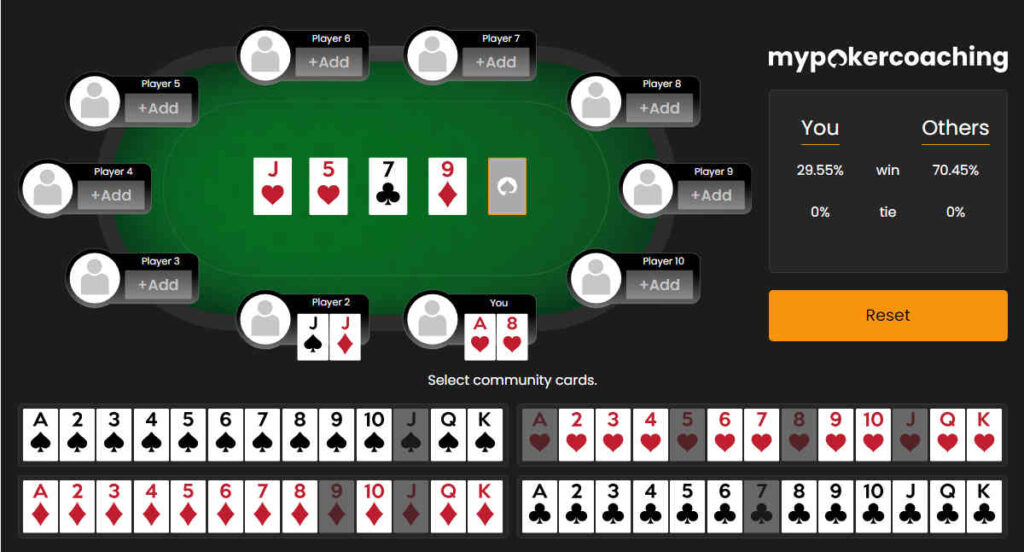
Reflecting on your performance helps you learn from your experiences and make better decisions in future sessions.
Actionable Takeaway: Write down your key hands. Commit to reviewing 3 of them after your next poker session. Bonus points if you work in the lab using AI and solvers, or talk the hands over with a community, friend, or coach.
7. Develop a Support System
Having a support system for fellow poker players can be incredibly beneficial. Discussing hands, sharing experiences, and getting feedback can help you stay motivated and improve your game.
Social learning is a critical component of making progress in all facets of life. We’re more likely to get in shape if we have a workout buddy, for example. Why would poker be any different?
Finding a group, community, coach, or mentor who can hold you accountable and help you improve is a great way to take your game to the next level. The key is to filter your community and ensure they are like-minded people who are committed to improving.
Actionable Takeaway: Connect with other poker players in your area or online. Regularly engage in discussions and hand reviews to gain new insights and perspectives.
Conclusion
Playing consistent A-game poker requires more than just strategic know-how; it demands a strong, focused mindset.
By establishing a pre-game routine, setting clear goals, staying present, managing your emotions, reviewing your play, maintaining physical health, and developing a support system, you can enhance your mental game and perform at your best consistently.
Remember, the journey to mastering your mindset is ongoing.
Implement these tips in your next poker session, and watch how they positively impact your performance.






